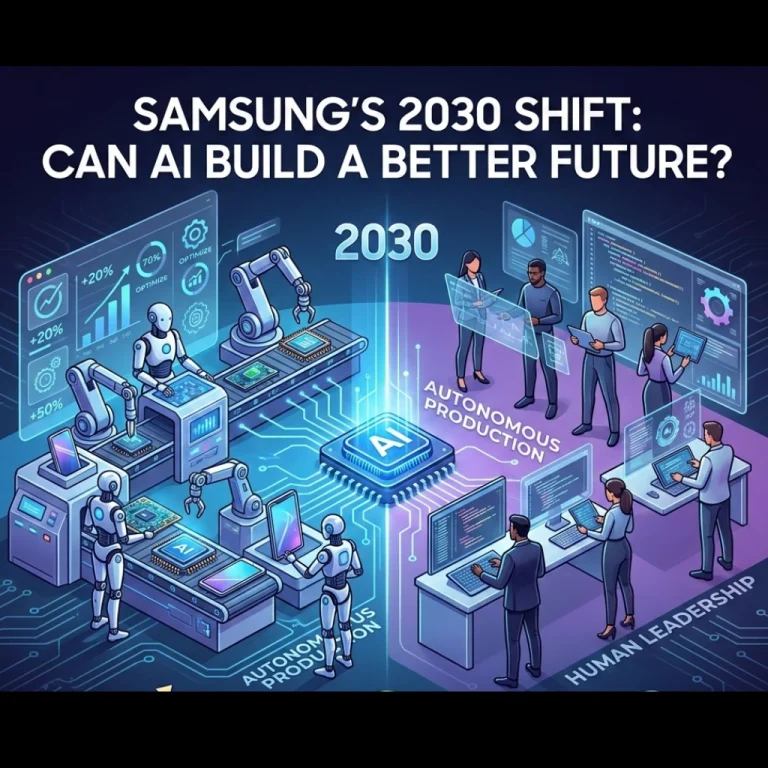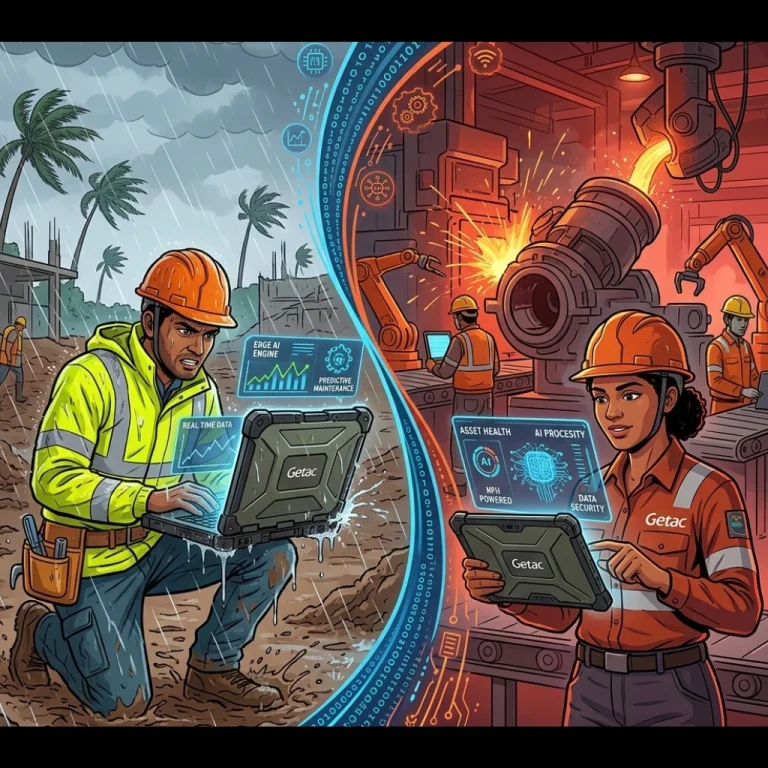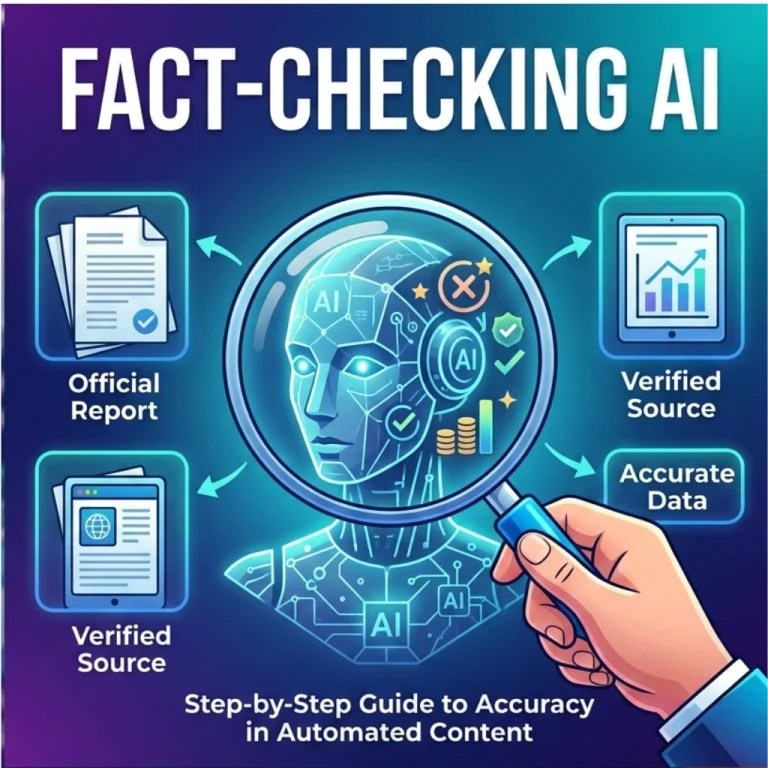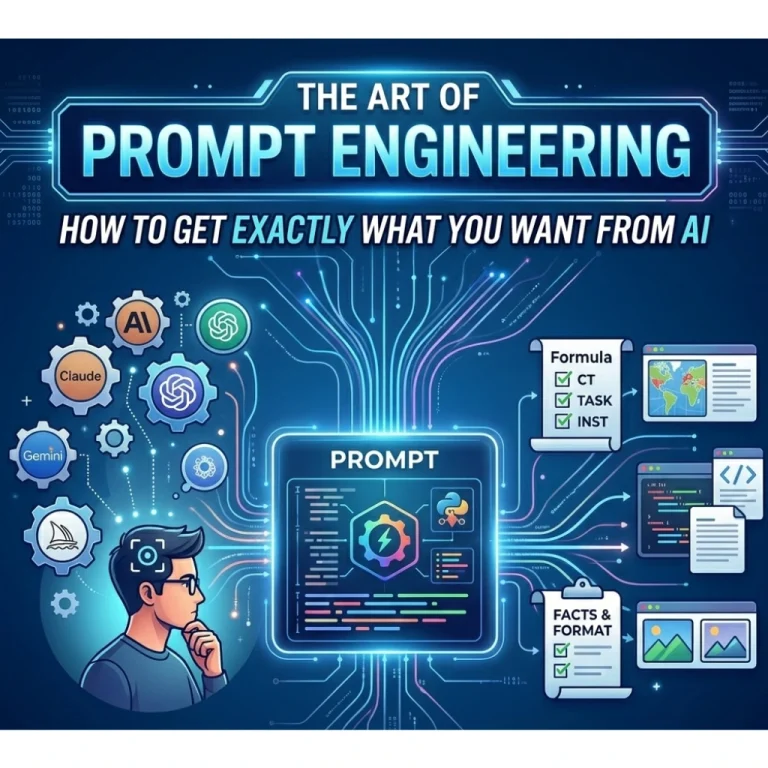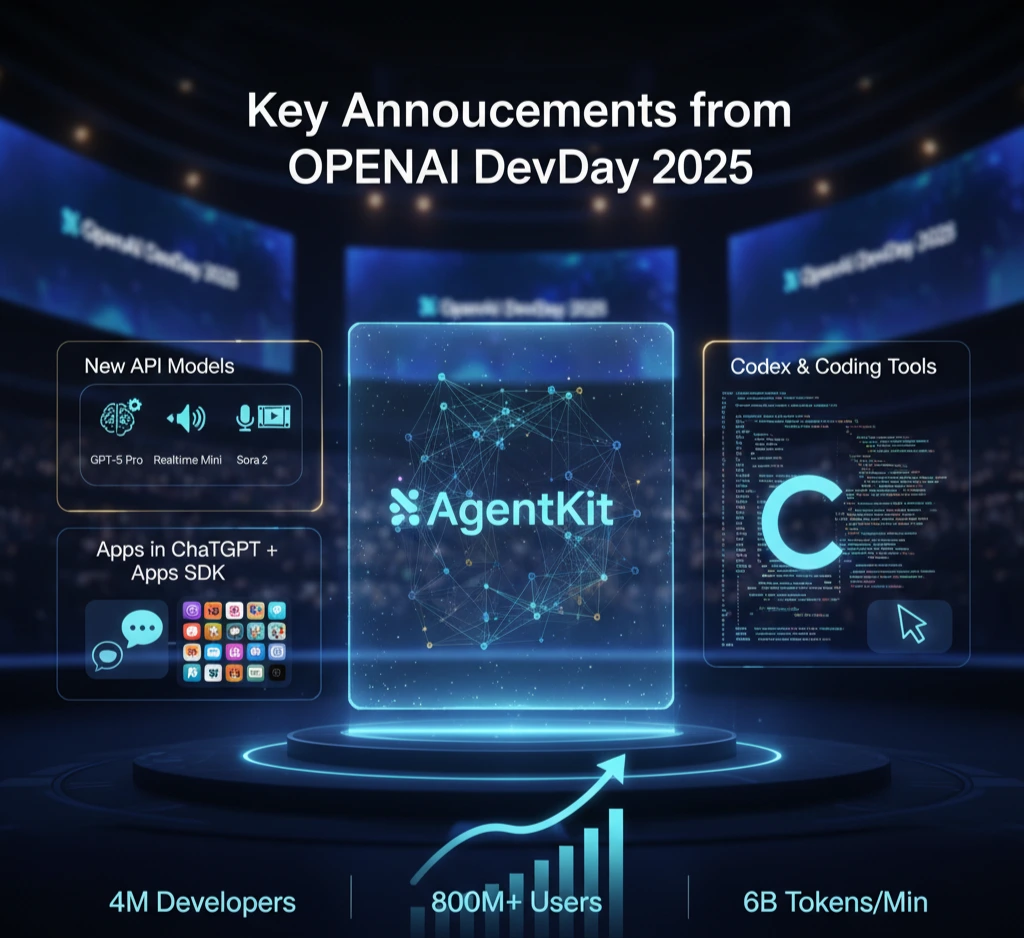
Artificial intelligence just took another giant leap forward. At OpenAI DevDay 2025, the company unveiled a wave of groundbreaking technologies that promise to redefine how humans build, create, and interact with AI.
Filled with new updates and smarter tools, the event showed OpenAI’s goal to make AI not only smart but also more cooperative. From powerful AI agents and real-time voice tools to creative video generation and new app features in ChatGPT, these launches mark the start of a more connected and intelligent AI future.
OpenAI Launches AgentKit for Smarter AI Agents
The biggest reveal of the day was AgentKit, a comprehensive toolkit allowing developers to build, deploy, and scale AI agents capable of handling reasoning, automation, and workflow execution. This tool effectively transforms AI assistants into intelligent software entities that can make autonomous decisions, integrate with business systems, and execute multi-step processes.
According to OpenAI’s technical leads, AgentKit is designed to make enterprise automation easier, from managing logistics and analyzing market data to handling customer interactions and project workflows. The launch marks a significant move toward a new generation of self-managed AI systems that work independently alongside humans.
GPT-5 Pro, Realtime Mini, and Sora 2 Set a New Standard for API Tools
OpenAI also rolled out three major upgrades to its API ecosystem.
- GPT-5 Pro: This version builds on GPT-4’s legacy but focuses on advanced reasoning and analytical processing. Tailored for demanding applications like scientific modeling, financial projections, and complex coding, GPT-5 Pro delivers higher accuracy and domain-specific adaptability.
- Realtime Mini: Designed as a lightweight voice AI, Realtime Mini offers real-time, natural speech capabilities at 70% lower costs than current systems. It enables expressive conversational experiences suitable for virtual assistants, interactive storytelling, and dynamic audio learning content.
- Sora 2: The upgraded video generation model is now available in the API, empowering creators to generate lifelike videos from text prompts. With cinematic quality, better motion coherence, and advanced lighting simulation, Sora 2 turns storytelling into a fully generative experience.
These models represent OpenAI’s strategic effort to merge speed, cost-effectiveness, and creative flexibility into one cohesive toolkit for developers and creators alike.
ChatGPT Evolves into an App Platform
Perhaps the most transformative announcement came with ChatGPT’s transformation into a full app platform.
For the first time, users can now chat directly with third-party apps inside ChatGPT, streamlining everything from travel booking to project management. Developers, meanwhile, can create their own ChatGPT apps using the new Apps SDK, giving rise to an internal marketplace for AI-powered utilities.
This move positions ChatGPT as not just a conversational agent but a digital hub where multiple services coexist. Whether it’s shopping, learning, or coding, users can accomplish tasks inside one dynamic environment, making ChatGPT a central AI workspace.
Codex Gets Smarter with Faster Code Completion
Another headline from DevDay 2025 was the debut of an enhanced Codex model. This updated version provides faster, more accurate code suggestions with better contextual understanding across multiple programming languages. Developers can now rely on Codex for improved debugging, code documentation, and seamless integration into IDEs.
By focusing on speed and accuracy, OpenAI aims to support both professional engineers and emerging programmers in accelerating their development cycles across AI-driven pipelines.
OpenAI by the Numbers: Milestone Growth
The event also showcased OpenAI’s record-breaking scale:
- 4 million developers are actively building with OpenAI tools.
- 800 million users engage with ChatGPT every week.
- Over 6 billion tokens are processed by OpenAI systems every minute worldwide.
These numbers not only demonstrate massive adoption but also underline OpenAI’s growing role in powering modern software and content creation ecosystems.
Redefining the Future of AI
At DevDay 2025, experts noted that OpenAI’s new technologies go beyond simple conversation, enabling AI to act, create, and collaborate. With AgentKit’s automation skills, GPT-5 Pro’s advanced reasoning, and ChatGPT’s app ecosystem, OpenAI is paving the way for AI to become a true co‑creator in every industry.
AI is no longer just responding to prompts; it’s handling tasks, generating ideas, and driving innovation.
FAQs
Find answers to common questions below.
What are the key announcements from OpenAI DevDay 2025?
OpenAI unveiled GPT-5 Pro, AgentKit, and ChatGPT Apps SDK at DevDay 2025. These updates boost automation, creative video generation, and app integrations, marking a major leap in AI development and workflow intelligence.
What makes GPT-5 Pro different from earlier models?
GPT-5 Pro focuses on advanced reasoning and task precision. It can analyze complex data, support coding and financial modeling, and deliver deeper insights for businesses and creators.
How does AgentKit change AI automation for developers?
AgentKit allows developers to build autonomous AI agents capable of managing workflows, reasoning through problems, and integrating with systems to automate real tasks efficiently.
Can creators use Sora 2 for video generation?
Yes, Sora 2 brings higher-quality, realistic video generation directly to OpenAI’s API, allowing creators to turn text prompts into cinematic visuals effortlessly.
What’s new in ChatGPT’s Apps SDK feature?
The new Apps SDK lets developers build apps that users can interact with directly inside ChatGPT, transforming it into a full digital ecosystem for productivity and creativity.

